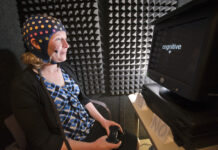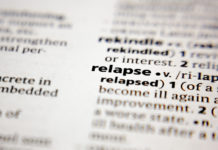Police Violence Victims at Increased Risk of Psychotic Symptoms
Researchers examine links between police victimization and psychotic symptoms in a topical new study.
Involuntary Hospitalization More Likely With Psychosis Diagnoses and Few Resources
New study links involuntary hospitalization with psychotic diagnosis, previous involuntary hospitalization, and economic deprivation.
On “Schizophrenia”
The first time I heard someone labeled schizophrenic I was about 10 years old. A man was talking to himself and appeared to be house-less and perhaps on drugs. My mom, a very good teacher and explainer of things to me, said, “That man is schizophrenic. That means he can't tell the difference between what's inside of himself and what's outside.” In retrospect this seems like a relatively sophisticated and sensitive explanation; Falling in love, hearing music that enters our heart, having children/giving birth, connecting powerfully with another person in a meeting of the minds, feeling empathy, deeply caring about something, experiencing oneness with nature, are all examples of times when the line between inner and outer reality is blurred.
Who is at Risk for Psychosis?
A report conducted by UK-based researchers indicates that rates of psychosis tend to be higher in ethnic minority groups and in individuals from lower socioeconomic backgrounds.
Leading Researchers Critique Current Paradigm for Studying ‘Schizophrenia’ Risk
Re-conceptualizing the Clinical-High-Risk/Ultra-High-Risk Paradigm: A critique and reappraisal
Study Explores Cognitive Effects of Antipsychotics
Reduced usage of antipsychotics in first-episode psychosis was associated with improved executive functioning.
Researchers Suggest Traumatic Experiences May Cause Psychotic Symptoms
A new study in JAMA Psychiatry investigates the relationship between trauma and psychotic experiences.
Enjoying the Road Less Traveled
The people that my son and I continued to consult with over the years didn't talk of mental illness as a brain disease, a chemical imbalance, or a problem with one's genes. Depending on the therapy, they spoke in terms of restoring life force energy, changing cellular vibration, learning to listen and understand, and building a self.
Omega-3 Screening for Psychiatric Symptoms?
There is a substantial body of evidence suggesting that not getting enough omega-3 fatty acids in your diet may be connected to a diverse array of psychiatric symptoms. In a new study published this month, psychiatrist Robert McNamara and Erik Messamore provide an overview of the evidence and call for screening of omega-3 deficiency in people experiencing symptoms associated with ADHD, depression, mood disorders, and psychosis.
The Road to Perdition
The recent research scandals out of the University of Minnesota’s Department of Psychiatry may be alarming, but they are not new. Back in the 1990s, when the university was working its way towards a crippling probation by the National Institutes of Health (for yet another episode of misconduct (this time in the Department of Surgery), the Department of Psychiatry hosted two spectacular cases of research wrongdoing, both of which resulted in faculty members being disqualified from conducting research by the FDA.
Air Pollution Linked to Mental Health Problems in Children
A new study, published in BMJ Open-Access this week, found a significant link between the level of air pollution in a community and the mental health of the children living there. After controlling for socio-economic status and other potential variables, researchers in Sweden discovered a strong association between the concentration of air pollution in a neighborhood and the amount of ‘antipsychotic’ and psychiatric drugs prescribed to children. The link remained strong even at pollution levels well below half of what is considered acceptable by the World Health Organization (WHO).
Study Finds First-Episode Psychosis Patients Fare Better with Vitamin D
Researchers examine the relationship between vitamin D and clinical and cognitive symptoms in first-episode psychosis.
Physical Inactivity Associated with Worse Cognitive Functioning in Psychosis
Higher levels of sedentary behavior are associated with poorer cognitive functioning in patients diagnosed with schizophrenia.
Psychotic Experiences Are Not Strongly Associated With Schizophrenia
Although psychotic experiences (PEs) and schizophrenia are thought to share similar etiological risk factors, PEs also co-exist with depression and, according to research from...
Many Psychiatric Patients Sent Home With Multiple Antipsychotics Against Guidelines
Despite the fact that clinical practice guidelines specifically recommend against the use of more than one antipsychotic at once, new research reveals that as...
New Review of Antipsychotics for Schizophrenia Questions Evidence for Long Term Use
A systematic review of the limited research available on the long-term effects of antipsychotics finds fewer symptoms in those off of the drugs.
Open Letter to Senator Creigh Deeds
Dear Senator Deeds:
Hello from another fellow Virginian. First, I want to extend my deepest condolences for the horrific tragedy that befell your family last year, and for the loss of your precious son Gus. I think I know, at least in part, how agonizing it is when our loved ones cannot access helpful supports, and how it feels to watch in horror as they spiral downward into darkness and despair. We all agree that our mental health systems are broken. Those of us who have been down the hellish road of struggling with our mental health and have found recovery have developed a new vision that will take us forwards, not backwards. Please give us the opportunity to share that new vision with you.
Early Attention to Life Circumstances and Relationships Improves Outcomes for Psychosis
Coordinated care with employment support and family therapy leads to superior outcomes for those diagnosed with psychotic disorders.
Valuing Posttraumatic Growth in Psychosis
Individuals who experience psychosis can also experience posttraumatic growth, which can be a central component of the recovery paradigm.
Antipsychotic Use Does Not Correlate With Conversion to Psychosis
Researchers in Brazil find, in a meta-analysis, that only 30% of youth deemed to be of ultra high risk of psychosis do in fact...
Madness and Play: Exploring the Boundary
When children do things like recoil in fear from monsters and ghosts in their darkened bedroom at night, it’s easy to see the “out of touch with reality” aspect of their experience as being closely related to the faculty that gives them their ability to play – their imagination. We help children through such challenging experiences by being with them, and by playing together, doing things like creating scary images together and then figuring out how to cope with them or laugh at them. In the process we help them explore how to create a world view that works to at least some extent and has room for joy and originality - when their imagination helps them (and maybe others) see the world in new ways.
Sleep Deprivation Leads to Schizophrenia-like Experiences
Researchers from the University of Bonn and King’s College London were “amazed” at the range of experiences associated with schizophrenia that were induced in...
Mental Health Documentary “Healing Voices” Premiers Across 130 Communities in 8 Countries
The producers of “Healing Voices” ‐ a new social action documentary about mental health ‐ are releasing the film via community screening partners in...
“Do We Have to Wait Until He Kills Himself or Someone Else Before Anyone...
In the "agreement for corrective action" against CAFE study coordinator Jean Kenney last week, the Board of Social Work cited Kenney's failure to respond to "alarming voicemail messages" from family members of Dan Markingson. Presumably, the Board is referring to a message left by his mother, Mary Weiss, which warned, "Do we have to wait until he kills himself or someone else before anyone else does anything?" The failure of Kenney and Stephen Olson to take the warnings of Mary Weiss seriously has been one of the most disturbing aspects of this case. In a deposition for the lawsuit filed by Weiss, Kenney was questioned about her response. Here is an excerpt. (The initial questions come from Gale Pearson, an attorney for Mary Weiss.)
What Does ‘Relapse’ Mean? Definitions Used in Antipsychotic Trials Are Unclear
Antipsychotic drugs are prescribed on the basis of trials that demonstrate a higher rate of ‘relapse’ in people who are withdrawn from these drugs compared to those who continue to take them. Yet, incredibly, there is no consensus about what ‘relapse’ means in this situation.






















